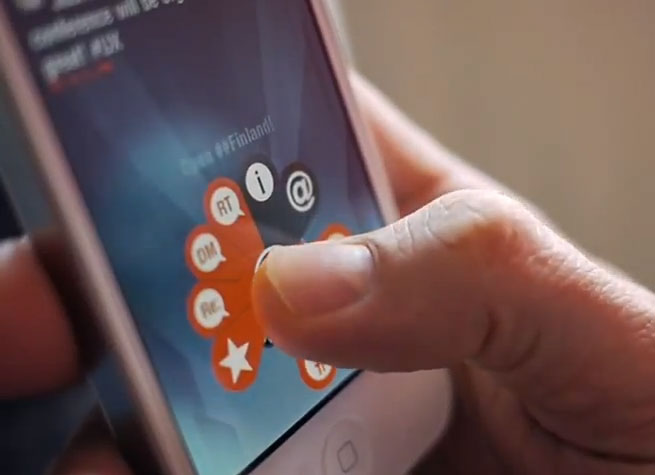
We’ve been keeping an eye on Twheel, an absolutely stunning Twitter client for iOS. It’s a fun, thumbable carousel that presents tweets in an entirely new and totally gorgeous interface.
Too bad it was doomed from the start.
You see, although the pretty app is innovative, unique, and beautifully designed, it crosses the line for Twitter API use. Over the past couple of years, Twitter has consistently asked developers to stop making Twitter clients — apps that scrape Twitter’s data (tweets, profile info, etc.) and reproduce it in a new API without Twitter’s advertising products (the promoted tweets, profiles, and trends that pay the young startup’s bills and that don’t currently have their own API).
From stages and in blog posts and memos, Twitter execs have been steering developers away from building clients, recommending instead focusing apps and third-party businesses on analytics, marketing, and other areas of opportunity. While the API technically still allows for client-building, that will be changing soon.
Specifically, Twitter’s API terms of service currently state that Twitter apps “cannot frame or otherwise reproduce significant portions of the Twitter service.” While the API still currently allows for clients — a legacy we’re sure will be corrected over the coming months and years — the terms of service place some strict rules on how clients display tweets and serve ads.
Twitter started out with a wide-open API for any kind of use, including building clients like Twheel. However, since 2010 or so, Twitter has been slowly applying pressure to the ecosystem of third-party apps and hoping that developers will get the loud-and-clear message: No more clients, please.
Twitter itself acquired a couple of the more popular clients, including iPhone app Tweetie and desktop app TweetDeck. Other apps, such as UberTwitter, Seesmic, and Hootsuite, have been put into the awkward position of competing with their own API provider.
Here’s a demo video/commercial showing what Twheel can do:
[youtube http://www.youtube.com/watch?v=BIGImsvULK0&w=640&h=360]
Starting in 2010 and continuing through 2011, Twitter began issuing strong and consistent messaging to developers: Don’t make a Twitter client using Twitter’s API. Don’t duplicate Twitter’s features, and don’t rename or redesign them. Most vitally, don’t channel users away from Twitter’s ads.
These changes were reflected in the company’s API documentation as well as in several memos and blog posts from high-profile Twitter platform employees.
So, why would the founders press forward with the app when it’s obvious Twitter isn’t smiling on such uses of the API?
We’re not sure if Twheel’s launch represents arrogance, ignorance, or high optimism on the part of its team, but of this we are sure: the app won’t be around for long.
In 2007, Twitter was still in its infancy and needed client apps to improve on its bare-bones design and create excitement and adoption for the young service. Co-founder Biz Stone said at the time, “The API has been arguably the most important, or maybe even inarguably, the most important thing we’ve done with Twitter. It has allowed us, first of all, to keep the service very simple and create a simple API so that developers can build on top of our infrastructure and come up with ideas that are way better than our ideas.”
But times have changed drastically over the past five years, and so has Twitter’s position on its own API and the developers that use it.
Twheel may try to save itself by incorporating other services; the team may reach some sort of agreement with Twitter; it could languish in the App Store with a few thousand downloads, allowing it to pass under Twitter’s radar. Or it could see its API access revoked. Or it could get quietly crushed during a Twitter API update. Time will tell; we’ve reached out to both companies for more information on the issues at stake and will update this post when we hear back.


